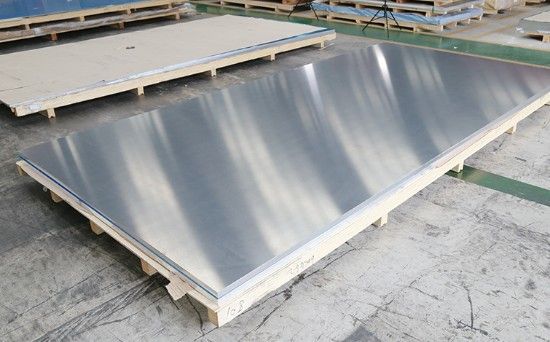Corrosion-resistant aluminum sheet refers to aluminum and aluminum alloy sheets that achieve superior corrosion resistance (e.g., resistance to atmospheric corrosion, seawater corrosion and chemical media corrosion) through optimized alloy composition, microstructure control or surface treatment. Its core characteristic is its ability to slow down or inhibit oxidation and electrochemical corrosion in service environments, thereby extending its service life.

Major Types of Corrosion-Resistant Aluminum Alloys
The performance of corrosion-resistant aluminum sheet is primarily determined by the alloy composition. Common alloy series and typical models are as follows:
1. 5000 Series Aluminum Alloys (Aluminum-Magnesium Alloys, Rust-Proof Aluminum)
With magnesium as the primary alloying element (magnesium content 1%-5%), this series is one of the most corrosion-resistant aluminum alloys. It is a type that cannot be heat-treated (strength is increased through cold working).
Typical models include: 5052 (magnesium content approximately 2.5%), 5083 (magnesium content approximately 4.5%), and 5754 (magnesium content approximately 3.5%).
2. 3000 series aluminum alloys (aluminum-manganese alloys)
With manganese as the primary alloying element (manganese content 1%-1.5%), they offer superior corrosion resistance to pure 1000 series aluminum (pure aluminum has good corrosion resistance but lower strength) and excellent processability (easily stamped and welded).
Typical alloys: 3003 (manganese content approximately 1.2%) and 3004 (manganese content approximately 1.2%, with a small amount of magnesium).
3. Other Specialty Alloys
Some 6000 series (aluminum-magnesium-silicon) or 7000 series (aluminum-zinc-magnesium) alloys can improve their corrosion resistance through process optimization (such as homogenization and surface anodizing), but they are not mainstream corrosion-resistant alloys (6000 series aluminum alloys have moderate corrosion resistance, while 7000 series aluminum alloys are susceptible to stress corrosion).
Performance characteristics of corrosion-resistant aluminum sheet:
1. Excellent Corrosion Resistance:
A core advantage, 5000 series aluminum alloys offer outstanding corrosion resistance in seawater and humid atmospheres (the alloy phase formed by magnesium is stable and not susceptible to electrochemical corrosion). 3000 series aluminum alloys offer excellent corrosion resistance in neutral or slightly alkaline environments.
2. Mechanical Property Compatibility:
The strength of 5000 series aluminum alloys increases with increasing magnesium content (5052 has medium strength, 5083 has high strength), making them suitable for structural parts. 3000 series aluminum alloys have lower strength but excellent plasticity, making them suitable for deformation processing.
3. Excellent Processability:
They can be welded (5000 series aluminum alloys are suitable for argon arc welding, while 3000 series aluminum alloys have excellent weldability), stamped, and bent. Their strength can be further increased through cold working (heat treatment is not recommended to prevent high-temperature corrosion).
4. Other Characteristics:
5000 series aluminum alloys exhibit excellent low-temperature performance (strength does not decrease at -196°C), making them suitable for low-temperature environments. 3000 series aluminum alloys are not susceptible to stress corrosion and are relatively low-cost.
Applications range of corrosion-resistant aluminum sheet covers:
1. Marine Engineering: 5083 and 5052 aluminum sheet are used in ship hulls, offshore platform components, and seawater pipelines (resistance to seawater corrosion).
2. Chemical Industry: 3003 and 5754 aluminum sheet are used in chemical storage tanks and pipelines (resistance to acid and alkali corrosion).
3. Construction Industry: 5052 and 3003 aluminum sheet are used for outdoor curtain walls, door and window frames, and roofing (resistance to atmospheric oxidation and rainwater corrosion).
4. Transportation Industry: 5052 aluminum sheet is used for tank truck bodies and compartments (resistance to oil and humid environments); 3004 aluminum sheet is used for automotive fuel tanks (suitable for weldability and formability).
5. Food Industry: 3003 aluminum sheet is used for food packaging and refrigeration equipment (corrosion resistance and non-toxicity, meeting food contact standards).
6. Cryogenic Engineering: 5083 aluminum sheet is used for liquefied natural gas (LNG) storage tanks and cryogenic pipelines (low-temperature resistance and corrosion resistance).
In summary, corrosion-resistant aluminum sheet, with 5000 series and 3000 series aluminum alloys as its core, is widely used in applications requiring long-term corrosion resistance due to its balance of corrosion resistance and workability.